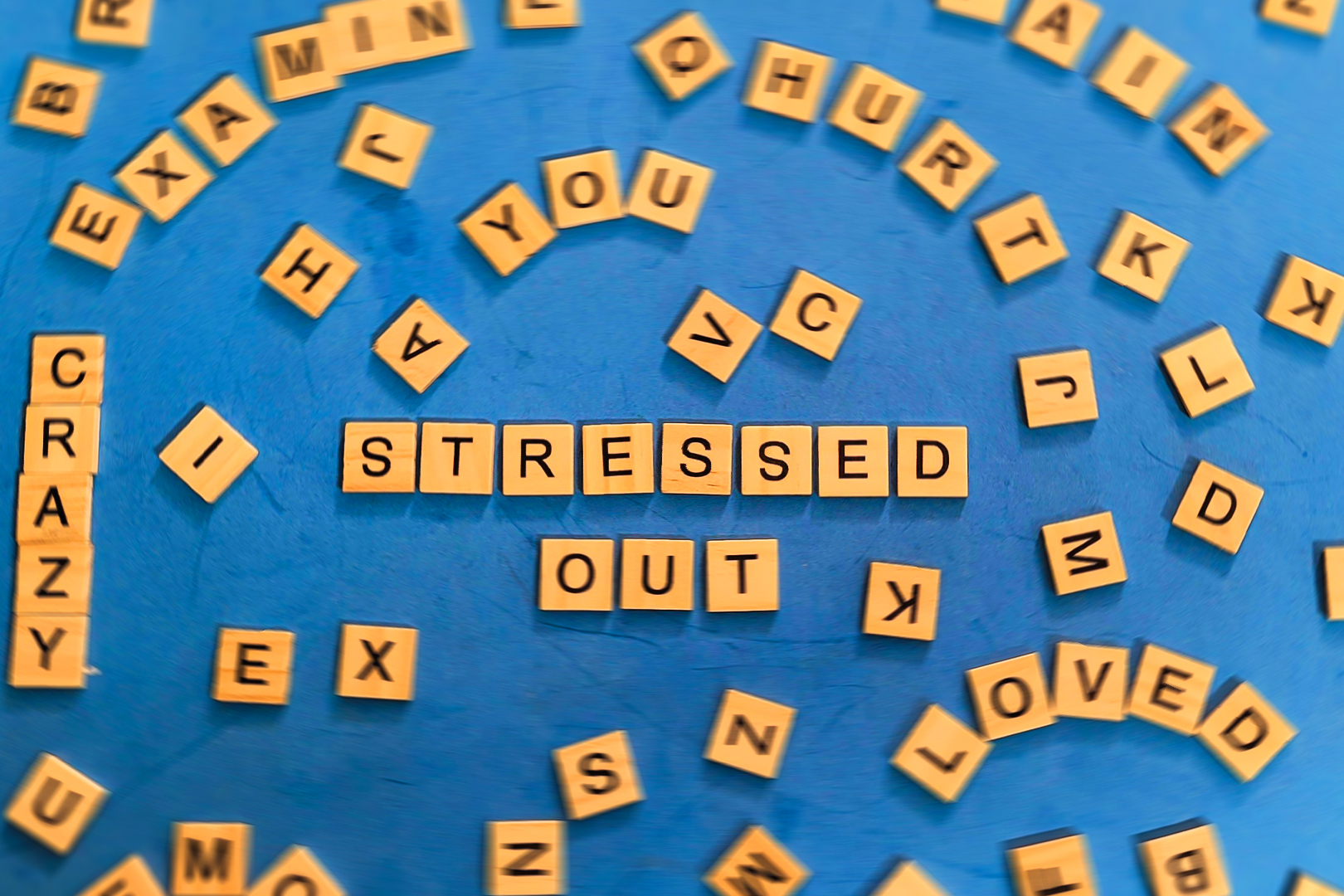
April 2, 2024Stress: The Silent (and Not So Silent) Saboteur
?On National Stress Awareness Month, we bring attention to the negative impacts of stress and strategies to improve your mental and physical well-being.
?On National Stress Awareness Month, we bring attention to the negative impacts of stress and strategies to improve your mental and physical well-being.
Stress affects all of us, whether we notice it or not.
April is recognized as National Stress Awareness Month to bring attention to the negative impacts of stress. Managing stress is essential to a healthy lifestyle but can be challenging. Knowing the signs of stress and learning how to manage it can improve mental and physical well-being and minimize the exacerbation of health-related issues.
Is Stress Affecting You? Know the Signs.
Some of the outward visible signs of stress include:
- Facial expressions: Stress can manifest in facial expressions such as furrowed brows, clenched jaws, or frowns, indicating tension or discomfort.
- Body language: Stress may be evident through body language, such as fidgeting, pacing, nail-biting, or restless movements.
- Changes in posture: Stress can cause individuals to adopt tense or rigid postures, such as hunching over, crossing arms, or avoiding eye contact.
- Increased sweating: Stress can lead to increased perspiration, resulting in sweaty palms, forehead, or underarms, even in cool environments.
- Trembling or shaking: Stress may cause trembling or shaking hands, legs, or voice, reflecting nervousness or anxiety.
- Changes in speech patterns: Stress can affect speech patterns, resulting in stuttering, rapid speech, or a shaky voice.
- Flushed or pale complexion: Stress may cause changes in skin color, leading to a flushed or pale complexion.
- Decreased personal grooming: Chronic stress may lead to neglect of personal grooming habits, such as unkempt hair, wrinkled clothing, or lack of attention to hygiene.
- Increased aggression or agitation: Stress can manifest in increased irritability, impatience, or aggression, leading to conflicts or confrontational behavior.
Stress can manifest in silent symptoms, too, that may go unnoticed or be attributed to other factors. Some of these include:
- Muscle tension: Stress can cause muscles to tense up, leading to stiffness, soreness, or tension headaches.
- Digestive issues: Chronic stress can disrupt the digestive system, resulting in symptoms like stomachaches, nausea, diarrhea, or constipation.
- Changes in appetite: Stress may affect appetite, leading to overeating or loss of appetite, which can result in weight gain or loss.
- Sleep disturbances: Stress can interfere with sleep patterns, causing difficulty falling asleep, staying asleep, or experiencing restful sleep, leading to fatigue and exhaustion.
- Frequent illness: Chronic stress can weaken the immune system, making individuals more susceptible to infections, colds, or other illnesses.
- Memory and concentration problems: Stress can impair cognitive function, affecting memory, concentration, and decision-making abilities.
- Emotional changes: Stress may lead to mood swings, anxiety, or feelings of sadness or depression.
- Headaches: Stress can trigger tension headaches or migraines, resulting in recurring or persistent head pain.
- Fatigue: Chronic stress can drain energy levels, leading to feelings of exhaustion, lethargy, or lack of motivation.
Recognizing the outward visible signs and silent, invisible symptoms of stress in oneself or others can prompt individuals to seek professional help, practice stress management techniques, and make lifestyle changes to alleviate stress and promote overall well-being.
Are You Stressed? Take the Test.
The Mental Health American (MLA) offers this free stress screening. Be honest with your answers, and feel free to share your signs and symptoms in this post’s comments. The more open we are as a community about how stress affects us personally and professionally, the more awareness is brought to this critical topic.
Learn More From Wellness Experts.
Are you interested in educating your audience about the effects of stress and strategies for stress management? Check out the profiles and podcasts of expert speakers like Dr. Saundra Dalton-Smith, Dr. Amishi Jha, Dr. Rebecca Heiss, Dr. Peter Attia, Eliz Greene, John Ayo, and Karen Allen.
DM me here on LinkedIn for more information about their keynotes and fees. Follow us on Instagram, TikTok, and YouTube to engage with our content and discover more engaging speakers with moving messages.
Discover More Insights
Get in TouchContact US
Fill out the form so we can best understand your needs.
A representative from The Keynote Curators will reach out to you.








